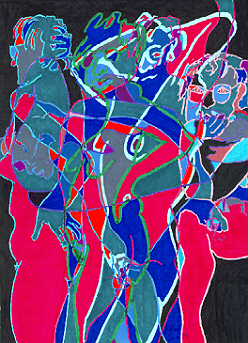
Ethnography studies the culturally shared, common sense perceptions of everyday experience. Post-modern ethnography is a cooperatively evolved text relying on the reader to construct an aesthetic integration of the common sense reality. It has an allegorical import without a narrative. It favours discourse over text. The separate tellings and stories can converge on a common theme.
Several ideas are presented such as: the newspaper as a preferred form, polyphony generates perspective relativity, the author free text is a tradition (myth, folklore). Technology (tape recorders) provide a means to 'steal the subjects voice'.
Post-modern ethnography is not an object but voice'.
Post-modern ethnography is not an object but a means. Its purpose is to invoke an understanding. This provides freedom from representation and symbolism. It is fragmentally like life and experience.
Much of this paper was spent on descriptions of what post-modern ethnography was not: generalization, descriptive (from a scientific view point), comparative, indicative or verifiable. I find this extreme in its attempt to place post-modern ethnography as a therapeutic process over the obvious communication that takes place through the direct and constructed texts.
Page Created March 10, 1998
Page Last Updated April 2, 1998